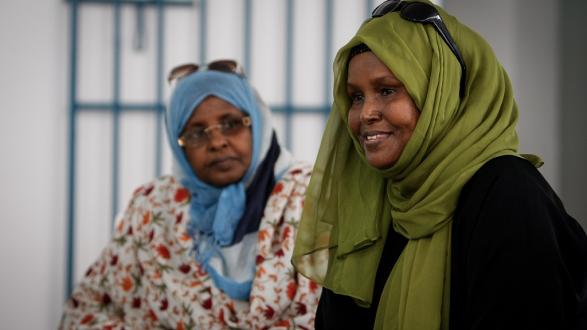"I didn’t plan on becoming obsessed with Africa...I have returned to the fascinating, unpredictable, and maddening continent again and again to report stories," writes Alexis Okeowo, author of "A Moonless, Starless Sky," the most recent book selection in the Pacific Council Book Club.
Okeowo is an accomplished journalist, daughter of Nigerian immigrants who grew up in Alabama, and a Princeton alumna. She ultimately decides to return to her roots to discover the human side of the African experience.
As an African-American woman from the South, Okeowo is no stranger to racism, but instead uses her experience to share stories of ordinary but brave people willing to share what they have seen, experienced, and overcome in Africa.
Okeowo comes to realize that headlines in the news do not accurately portray the places she visits. It is by hearing the personal stories of individuals that we can better understand global conflict.
One such story is about a school girl abducted by Boko Haram. She decides to jump off the truck she was sitting on and run and hide until she could find safety.
We also meet the young boy who listens to his proud father speak about the crime of slavery in Mauritania, which currently enslaves some 43,000 people. His father does not lead the change but rather inspires his son, Biram, to become an anti-slavery activist. We read how Biram personally frees a slave from her owners while she fights back.
Okeowo comes to realize that headlines in the news do not accurately portray the places she visits. It is by hearing the personal stories of individuals that we can better understand global conflict.
"I needed to practice empathy when writing. That meant telling the stories of their lives," Okeowo writes.
We also learn about how one’s own cultural identity can influence the lens through which we view stories of oppression, slavery, and extremism.
She draws from her own personal confrontations with racism in the Deep South in the 1990s and her pride in her Nigerian heritage. She chooses to fight extremism by sharing stories of ordinary people bravely facing some of the worst violence perpetrated in the name of Christianity or Islam.
The Pacific Council also recently hosted a virtual book club featuring Souad Mekhennet’s "I was Told to Come Alone," which recounts the author’s journey behind the line of jihad.
Mekhennet shares much in common with Okeowo. She also uses her heritage to better understand the people she meets. Mekhennet bravely meets with Abu Yusaf, an ISIL security commander. Because Mekhennet is of both Moroccan and Turkish descent, she speaks to him in his native Moroccan Arabic, opening up the conversation and proving herself as a trustworthy journalist. Because of her courage in seeking truth, we learn more about Yusaf and his decision to join the Islamic State. He explains that he sees the caliphate as the only answer to the second class citizenship offered to Muslim migrants in Europe. Mekhennet’s background and cultural experience is not much different – but she instead chose to make a career in Europe as an accomplished journalist, showing that an alternative to Yusaf’s life of extremism is possible.
We learn from both Okeowo and Mekhennet about the roots of extremism. We also learn about how one’s own cultural identity can influence the lens through which we view stories of oppression, slavery, and extremism.
It is my hope that more brave writers will commit to exploring the roots and prevalence of global conflict so we may thoughtfully and deeply understand the world around us.
___________________
Martha Sardiñas is a Pacific Council member and former foreign service officer with the U.S. Department of State.
The views and opinions expressed here are those of the author and do not necessarily relfect the official policy or position of the Pacific Council.




